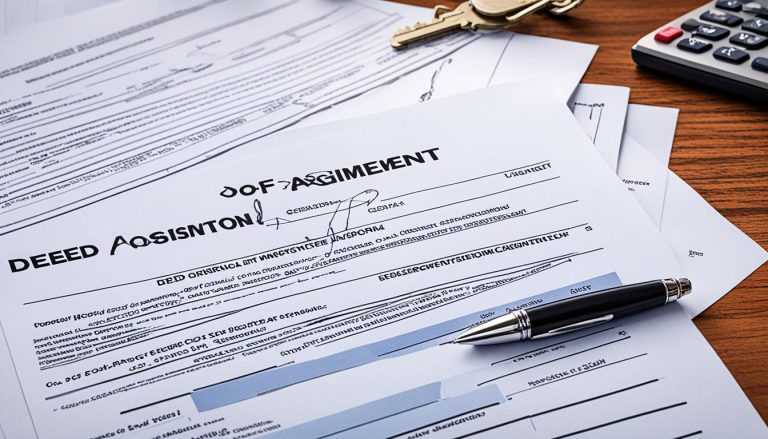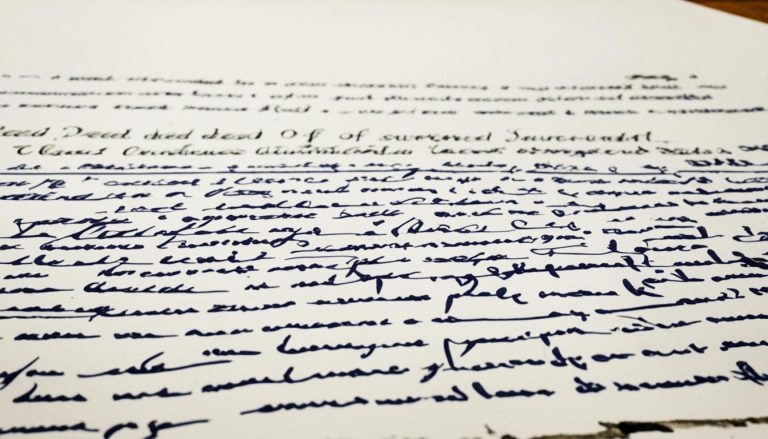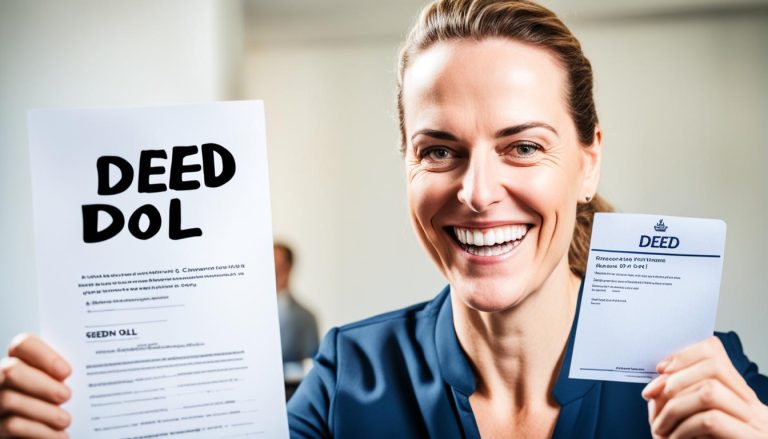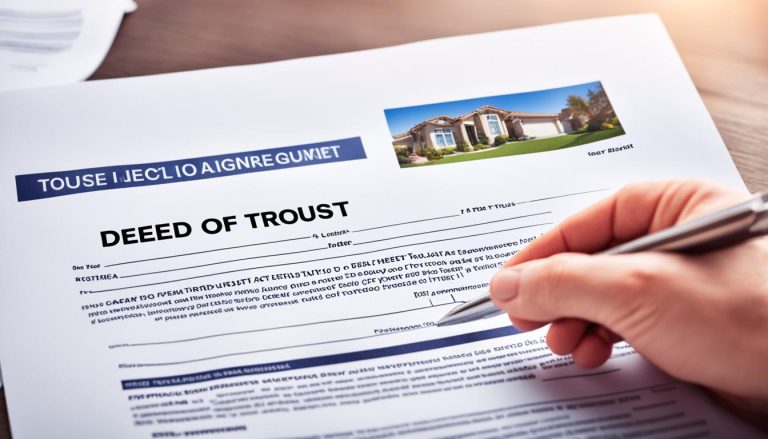Welcome to our informative article that aims to shed light on a common concern among spouses: what happens to a husband’s property if the wife’s name isn’t on the deed? It’s important to understand the rights and legalities surrounding property inheritance to ensure you are well-informed and equipped to navigate such situations.
When it comes to property ownership, the United Kingdom has specific laws and regulations in place. As we delve into the topic, we will provide you with valuable insights and answers to questions such as “Am I entitled to my husband’s property if my name isn’t on the deed?”
Understanding UK inheritance laws is crucial to comprehending the rights and entitlements that spouses have regarding property. We’ll explore these laws in detail, giving you a clearer picture of your legal position when it comes to your spouse’s assets.
Spousal property rights are another aspect we will cover in this article. Knowing your rights as a wife and understanding what you might be entitled to can help you navigate the legalities of property division after your husband’s death.
Furthermore, we will explore the options available to you if your name is not on the deed of your husband’s property. It’s essential to be aware of the potential legal routes you can take to claim entitlement and understand the inheritance claim process.
Before we delve into these crucial details, let’s remind ourselves that seeking professional legal advice is vital in such matters. Having the right guidance throughout the process can help you make informed decisions regarding your entitlement to your husband’s property.
Continue reading to gain a deeper understanding of the rights and entitlements regarding a husband’s property, even if your name isn’t on the deed.
Understanding UK Inheritance Laws
When it comes to the distribution of property after a spouse’s death in the United Kingdom, it is essential to have a clear understanding of the UK inheritance laws. These laws play a crucial role in determining what happens to property and assets left behind by a deceased spouse.
UK inheritance laws outline the legal framework that governs property inheritance and the entitlements of surviving spouses. It is important to be aware of these laws to ensure that the property rights of the surviving spouse are protected and upheld.
One of the key aspects of UK inheritance laws is the entitlement of the surviving spouse to the deceased spouse’s property. These laws recognize the rights of the surviving spouse and provide legal provisions for their entitlement to the property.
Property ownership rules in the UK dictate how property is transferred after death. These rules take into account various factors such as the presence of a will, the marital status of the deceased individual, and the value of the estate. Understanding these rules is crucial in determining how property rights are allocated after the death of a spouse.
Property Inheritance Process in the UK
When a spouse passes away, the property inheritance process in the UK typically follows a specific legal procedure. The process involves the identification and assessment of the deceased’s assets, the payment of any outstanding debts or taxes, and the distribution of the remaining property to the beneficiaries and entitled parties.
It is important to note that the entitlement of the surviving spouse to the deceased spouse’s property may depend on various factors, such as whether a will exists, the nature of the property ownership, and the presence of any other legal agreements or arrangements.
Seeking professional legal advice is highly recommended to navigate the complexities of UK inheritance laws and understand the specific entitlements and rights of a surviving spouse with regards to property inheritance.

Having a clear understanding of UK inheritance laws is crucial for ensuring that a surviving spouse’s entitlement to property is protected and upheld. By familiarizing oneself with these laws, individuals can navigate the property inheritance process with greater confidence and make informed decisions regarding their legal rights and responsibilities.
Exploring Spousal Property Rights
When it comes to property ownership rights in marriage, understanding spousal property rights is crucial. In the UK, spouses have certain entitlements to each other’s property, even if their names are not on the deed.
Spousal property rights ensure that both husbands and wives have a claim to their partner’s assets in the event of death or divorce. These rights aim to provide financial security and protect the interests of both parties involved.
Upon the death of a spouse, the surviving partner may be entitled to a share of the deceased’s property. The specific entitlements depend on various factors, including the presence of a valid will, the length of the marriage, and any existing agreements or arrangements.
Property Division after Death
In cases where a spouse passes away without a will, UK inheritance laws come into play to determine how the property will be divided. The laws prioritize the surviving spouse, ensuring they receive a fair share of the assets.
It’s important to note that the wife’s rights to her husband’s property and the husband’s property rights to his wife’s estate are not automatic. The specifics of each case are considered, and legal processes may be involved in determining the distribution of assets.
When it comes to property division after death, the courts consider factors such as the financial needs of the surviving spouse, the overall value of the estate, and any existing obligations or debts. The aim is to achieve a fair and equitable distribution that takes into account the circumstances of the individuals involved.
Seeking Professional Advice
Understanding spousal property rights and entitlements can be complex, particularly in cases where the name is not on the deed. It is advisable for individuals to seek professional legal advice to ensure they are aware of their rights and options.
A qualified solicitor specializing in family and inheritance law can provide valuable guidance and assist in navigating the legal processes involved. They can help individuals understand the specific implications of their situation and present the best course of action to protect their interests.

A Comprehensive View
To better illustrate the spousal property rights and entitlements, the table below provides an overview of key considerations in the UK:
| Spousal Property Rights | Explanation |
|---|---|
| Entitlement to Spouse’s Property | Spouses have a right to a share of their partner’s assets, even if their names are not on the deed. |
| Property Division after Death | In the absence of a will, UK inheritance laws determine how property is divided, with the surviving spouse given priority. |
| Husband’s Property Rights | The husband has entitlements to his wife’s property based on legal provisions and specific circumstances. |
| Wife’s Rights to Husband’s Property | The wife may have rights to her husband’s property, subject to legal considerations and applicable laws. |
It is important to consult with a legal professional to fully understand your spousal property rights and the options available to you. This will help ensure that you protect your interests and make informed decisions regarding property ownership and division.
Options Available Without Name on Deed
When it comes to inheriting a husband’s property in the UK, the absence of your name on the deed does not necessarily mean you have no options. There are legal routes you can take to claim your entitlement and ensure your rights are protected. In this section, we will explore the various options available for spouses who find themselves in this situation. Let’s dive in!
1. Seeking Professional Legal Advice
One of the first steps you should take is to consult with a qualified and experienced solicitor who specializes in inheritance and property law. They can provide you with invaluable guidance and advice specific to your circumstances. They will assess the details of your case, explain your rights and entitlements, and guide you through the legal routes available to you.
2. Making an Inheritance Claim
If your spouse passes away and you believe you have a legitimate claim to their property, you may consider making an inheritance claim. In the UK, certain individuals, such as spouses, have the right to make a claim against an estate, even if their name is not on the deed. This legal process allows you to pursue your entitlement and seek a fair distribution of assets.
3. Understanding the Inheritance Claim Process
The inheritance claim process involves various legal steps and requirements. It is crucial to familiarize yourself with the process and gather all necessary documents and evidence to support your claim. Your solicitor will guide you through each stage, ensuring that all relevant information is properly documented and presented in court, if necessary.
4. Negotiating with Executors and Beneficiaries
In some cases, it may be possible to reach a settlement through negotiation with the executors and beneficiaries of the estate. This approach can help avoid lengthy and costly legal proceedings. Your solicitor can assist in facilitating these discussions and ensuring that your interests are represented and protected during the negotiation process.
Remember, every case is unique, and the options available to you will depend on the specific circumstances surrounding your husband’s property and estate. Seeking professional legal advice is crucial to understanding your rights and maximizing your chances of securing a fair outcome. Now that we have explored the options available, let’s move on to the concluding section of our article.
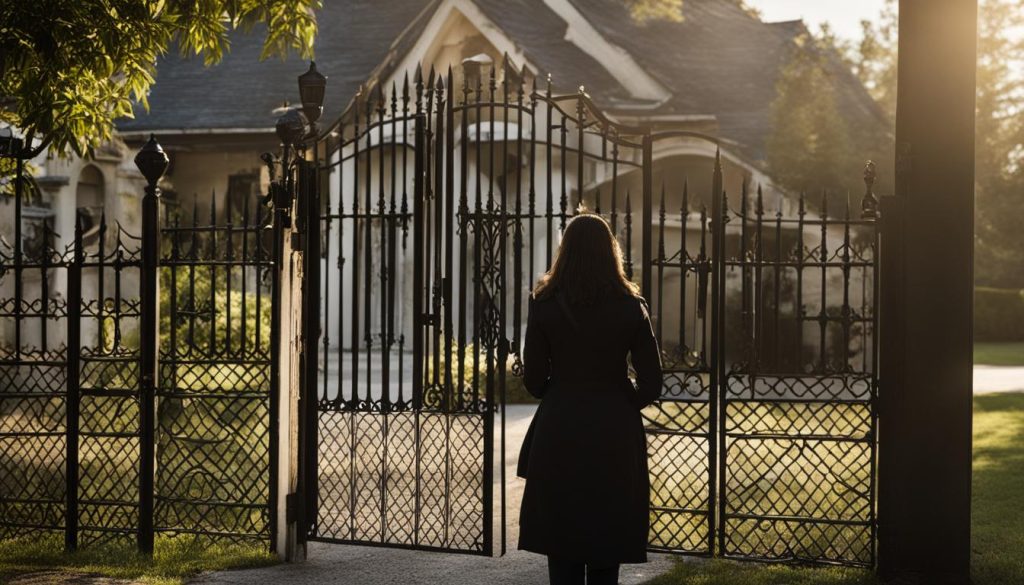
Conclusion
In conclusion, the question of whether a spouse is entitled to their husband’s property if their name is not on the deed in the UK depends on various factors, including the existence of a valid will, the legal framework of inheritance laws, and other relevant circumstances.
It is crucial for individuals to have a clear understanding of UK inheritance laws to navigate these complex matters. Consulting with a professional legal expert who specializes in property and inheritance can provide invaluable guidance and ensure that spouses are aware of their rights and entitlements.
While the absence of a name on the deed may initially raise concerns about property inheritance, it does not automatically preclude a spouse from claiming their rightful share. Legal routes, such as making an inheritance claim, can be pursued to establish entitlement and achieve a fair distribution of assets.
Overall, it is advisable for spouses to seek professional legal advice to fully understand their position and options in relation to their husband’s property. By doing so, they can ensure that their rights are protected and that they navigate the complex landscape of property inheritance in the UK effectively.
FAQ
Am I entitled to my husband’s property if he dies and my name isn’t on the deed in the UK?
In the UK, the entitlement to a husband’s property after his death depends on a variety of factors. While not being named on the deed does not automatically exclude you from any rights, it can complicate matters. It is advisable to seek legal advice to understand your specific circumstances and explore your options.
What are the husband’s property inheritance rights in the UK?
In the UK, the husband’s property inheritance rights are governed by the laws of intestacy or by the provisions in the deceased husband’s will. These laws outline how the property will be distributed, taking into account factors such as marital status, children, and other surviving relatives.
Do spouses have any rights to property even if their name is not on the deed?
Yes, spouses may have rights to property even if their name is not on the deed. In the UK, marriage can create legal rights and entitlements to the matrimonial home and other assets acquired during the marriage. It is important to consult a legal professional to understand the specific rights applicable to your situation.
What are the property ownership rights after a spouse’s death in the UK?
The property ownership rights after a spouse’s death in the UK depend on various factors, including the laws of intestacy, the deceased spouse’s will, and any legal agreements or arrangements made during the marriage. Consulting a solicitor or probate lawyer is advisable to understand your specific rights in such circumstances.
Are there any options available for claiming a husband’s property if my name is not on the deed?
Yes, there may be options available for claiming a husband’s property if your name is not on the deed. These options can include making an inheritance claim, seeking a court order, or exploring any legal provisions that may give you entitlement to the property. It is essential to seek professional legal advice to understand the process and your potential options.

